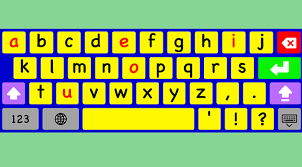Supporting Kids with Writing
- Alescia Ford-Lanza

- Sep 18, 2017
- 3 min read
Updated: Oct 19, 2018

The next time you sit down to type an email or write a document for work, make a shopping list, or write out a check (if anyone still does!?), reflect on the now-automatic writing process that your body and brain complete without you even knowing it!
Your brain is working to generate ideas, organize those ideas into coherent paragraphs, sentences, words, letters... you have come up with a format for your writing, included capital letters and punctuation, put spaces between your words, and put your letters on lined paper with some semblance of organization. The language centers of your brain have retrieved the appropriate vocabulary, encoded (spelled) the words correctly, and edited your writing for grammar.
Now look at your body: you're sitting (hopefully upright with good posture!), your hand is holding a pencil and moving it to make letter strokes out of good habits. Maybe you're typing in which case your fingers are fluidly moving over the keys in even keystrokes, automatically finding the letters you need.
There's a lot that goes into writing and as adults we take for granted how everything comes together to get it all written out before we move onto the next item on our to-do list!
For kids, the writing process is not yet automatic and there's a lot to consider when kids get "stuck" or struggle to produce written work. This graphic by CALL Scotland shows a graphic of how teachers and therapists analyze and troubleshoot writing difficulties -- it's not easy to piece apart exactly where supports are needed!

Skills Involved in the Writing Process
It's one of the most complex cognitive, motor, and language processes we develop as students. There's a lot involved in writing:
* Fine motor skills - How you hold and move the pencil, type, or "produce" writing

* Visual motor integration - How you form letters, spatially organize your writing, draw pictures to support your writing ideas
* Postural endurance - Is your core strong enough to maintain an upright seated posture while your brain is working hard on a task?
* Cognitive skills - Do you understand temporal concepts related to sequencing - what came first, next, last? Do you have an idea of what to write? Can you make a connection to the topic or know something to contribute to the discussion?
* Language-related skills - Do you understand and can you use the appropriate vocabulary or grammar? Are you able to take the perspective of another person or situation to write about it?
* Spelling - Do you have strong phonics or encoding skills to spell words correctly?
How to Support Struggling Writers
When you identify some of the skills that your child is showing difficulty with, you're better able to understand "why" certain accommodations are better than others. The following list of strategies is by no means all-encompassing but a good start to understanding what is possible!
* Low-tech assistive technology supports could include:
pencil grips
modified writing tools
slantboard
modified writing paper
graphic organizers to help students plan out ideas
adapted or flexible seating to affect postural demands
sequencing cards or "first, next, then" story mapping
* Mid-tech and High-tech tools supports could include:
keyboarding in lieu of handwriting
speech-to-text dictation writing
word prediction support
online story mapping or graphic organizer tools
digital storytelling apps (check out our Digital Storytelling blog post here)
spell check technology
handheld speller (i.e. Franklin)
use of a camera to support students who cannot draw accurate pictures of their ideas
audio-supported writing to support understanding (voice comments, voice notes embedded in documents)
grammar-checking software
Tips and Takeaways
If your child is struggling to keep up with the writing demands at school, reach out to your school's occupational therapist or your child's teacher to try some of the strategies that will support him.
If the difficulties are ongoing, don't forget to consider assistive technology to reduce some of the demands of writing. In the end, the goal is to get your child's inner author-voice heard! However you need to support that writing output, with modifications, accommodations, or skill-remediation, keep the end goal in mind so your child can feel successful at communicating all that he knows and has to say!






















Komentar